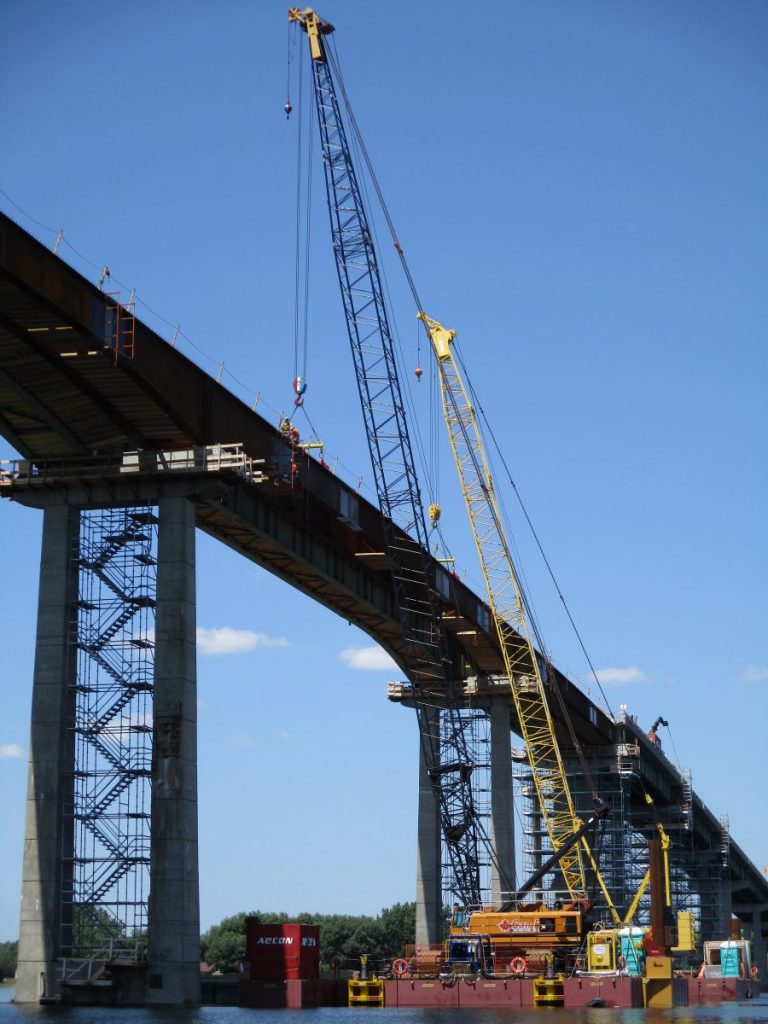
News
Projects & Infrastructure
CCA calls on Ottawa to develop long-term plan to address infrastructure deficit
July 9, 2021 By Crane & Hoist Canada Staff
 Two crawler cranes working from barges on a five-year, $63 million rehabilitation of the Bay of Quinte Skyway Bridge in Ontario. Courtesy of E.S. Fox Constructors Ltd.
Two crawler cranes working from barges on a five-year, $63 million rehabilitation of the Bay of Quinte Skyway Bridge in Ontario. Courtesy of E.S. Fox Constructors Ltd. The Canadian Construction Association (CCA) is calling on government to develop a long-term vision for infrastructure that is guided by an independent council to address a “large infrastructure deficit.”
“While not headline grabbing like self-driving or electric cars, infrastructure like roads and bridges are fundamental to our day-to-day lives,” it said.
“Even a self-driven electric car will need a road to run on and bridges to cross.”
The CCA sought feedback from members and stakeholders across the country and crafted a response to the federal government’s National Infrastructure Assessment, “Building the Canada We Want in 2050.” You can find a full copy of CCA’s response at https://www.cca-acc.com/wp-content/uploads/2021/06/Response-to-Building-the-Canada-We-Want-in-2050-1.pdf
The need for a longer-term infrastructure planning and investment strategy has been a central focus of CCA’s advocacy program.
Endorsed by CCA’s local construction association partners, the submission makes the following recommendations:
- Canada must develop a long-term vision guided by an independent, apolitical Canadian Strategic Infrastructure Council.
- The funding allocation model must change from intense scrutiny of one-off projects identified by provinces, municipalities, or Indigenous communities to a robust, longer-term asset management plan guided by the objectives established by an independent Council.
- Adopting a collaborative and agile approach to public procurement will accelerate the benefits to be gained from infrastructure investment. The federal government should fund provincial and municipal asset plans – not individual projects, and new collaborative models beyond low-cost bid or P3s should be researched and explored.
The submission is the result of an industry-wide consultation with CCA’s board, partner construction associations, National Advisory Councils, members and other stakeholders, it said.
CCA engaged Nanos Research to help conduct focus groups, an online survey, one-on-one executive interviews, several national workshops and a literature review. The consultation was also informed by independent and evidence-based analysis, from the Canadian Centre for Economic Analysis.
Print this page